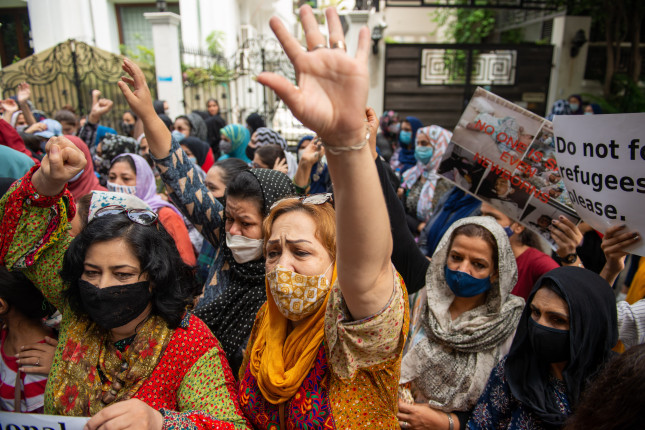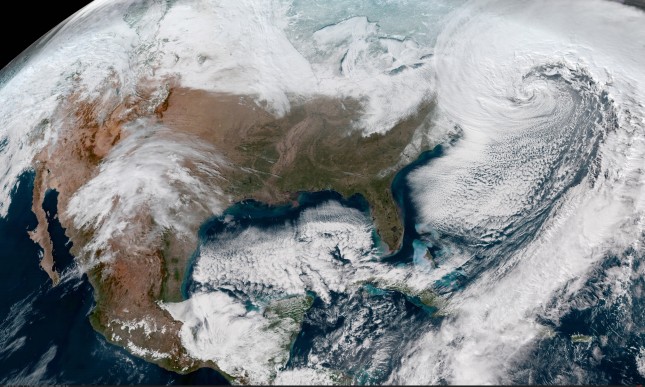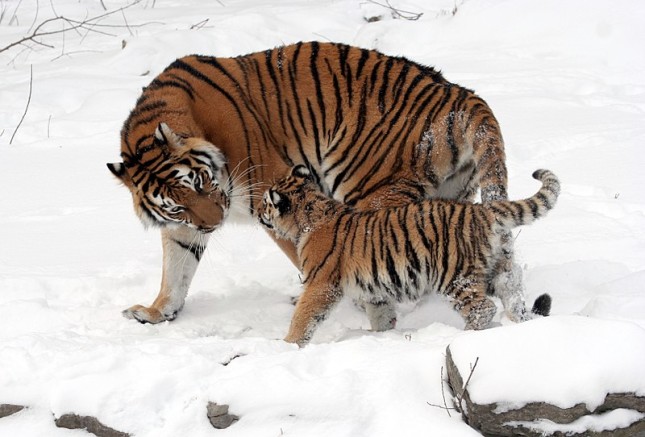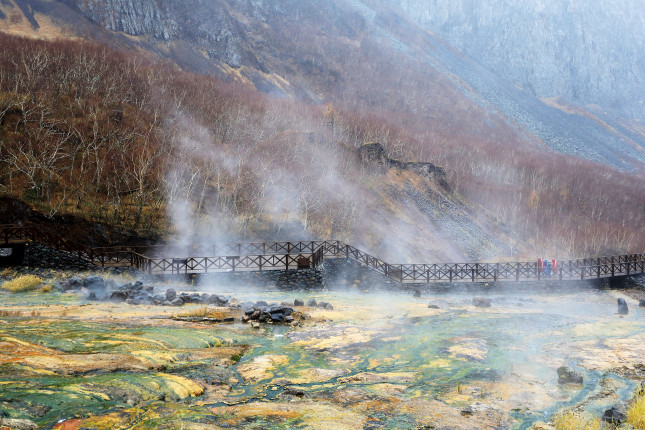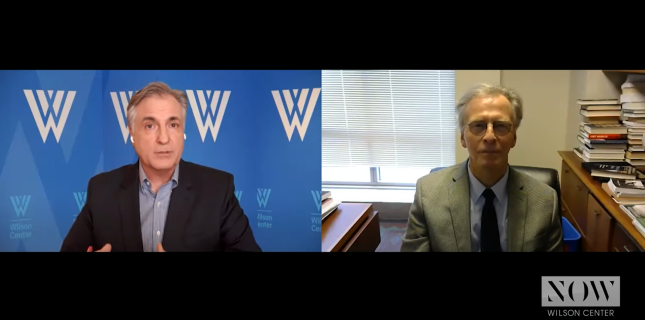-
Suicide and Overdose: The Leading Causes of Death for New Mothers
›
A new movie — A Mouthful of Air – was released in 800 theaters around the country on Friday, October 29. SPOILER ALERT: The storyline is about maternal depression and suicide.
This is an excellent example of art meeting life.
Mental health conditions – primarily anxiety and depression – are the most common complications of pregnancy and childbirth, affecting 1 in 5 pregnant or postpartum parents. Tragically, suicide and overdose are the leading causes of death for women in the first year following pregnancy.
-
Can COP26 Meet the Climate and Conflict Challenge?
›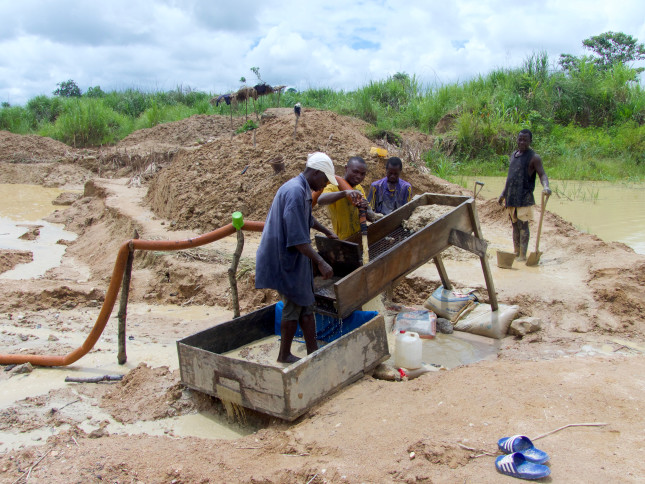
Global climate action must be sensitive to ‘land grabs’ and lost livelihoods for both a safer and greener world to be built in Glasgow.
With all eyes on COP26, the world is holding its breath. This year’s negotiations will need to see truly ambitious commitments to ramp up climate action in order to avoid a dangerous future. There has never been a greater sense of the urgency in the climate movement.
As a peacebuilder, I’m looking closely at what the implications of the much-needed pledges might be for the 1.5 billion people living in fragile and conflict-affected contexts. The discussion on the impact of climate change on security and social stability is gaining momentum but is still effectively on the fringes of the COP26 agenda. That is a concern.
-
‘Women’s Bodies are No One’s Battlefields’: Preventing War and Conflict-Related Sexual Violence
›“Since time immemorial, rape has been used to control women’s sexuality, labor, and reproduction, to shred the social fabric, to conquer territories and populations, and crush the enemy’s moral and will to resist,” said Under Secretary General Pramila Patten, UN Special Representative on Sexual Violence in Conflict, at an event focused on addressing conflict-related sexual violence (CRSV) organized by The Secretary’s Office for Global Women’s Issues, Search for Common Ground, and the Georgetown Institute for Women, Peace, and Security. In the past two decades, legislative reform, sanctions against perpetrators, and systematic reporting have slowly transformed the climate of impunity surrounding CRSV, said Patten.
-
The Biden-Harris Administration Releases a (Nearly) Whole-of-Government Response to Climate Security
›October 29, 2021 // By Lauren Herzer RisiLast week, in an unprecedented show of coordination to address the connections between climate change and security, the Biden-Harris Administration released four reports—which taken together, mark significant progress in the effort to center climate change in U.S. national security and foreign policy. The documents—which fulfill key requirements laid out in two Executive Orders issued by President Biden in the early days of his administration—describe how climate change will increasingly heighten instability and influence the United States’ strategic interests, including shaping competition with other great powers—most significantly, China.
-
Sharon Guynup, Mongabay
In Harm’s Way: Our Actions Put People and Wildlife at Risk of Disease
›
A gaunt, staggering tigress named Galia alerted researchers in the Russian Far East that something was very wrong. She, and soon other wild Amur tigers (Panthera tigris altaica), wandered through villages and stumbled across roads, dazed, hungry, and boldly unafraid of humans — extremely abnormal behavior for this secretive, wary cat.
-
U.S. and Chinese Aquaculture Taps into a Carbon-Free Geothermal Energy Source
›
From Friday night fish fries to shrimp cocktails, people sheltering in place have learned how to cook their favorite dishes at home. As a result U.S. seafood sales have doubled during the pandemic. Globally, the United States ranks fifth in seafood consumption and China—where hunger for seafood has skyrocketed with rising incomes—is number one. While wild fisheries are on the decline, aquaculture is expanding to increase the global food supply.
-
Seeing and Hearing Mothers: Uncovering Poor Perinatal Mental Health
›
Globally, 15 to 20 percent of women experience a perinatal mental health condition, said Sarah Barnes, Project Director of the Maternal Health Initiative at a recent event, held in partnership with the United Nations Population Fund (UNFPA), on mental health support for mothers in the perinatal period. Women are more likely to develop anxiety or depression in the year after giving birth than in any other time in their lives, with suicide and overdose the leading causes of death in the first year postpartum. “And yet, the prevention, early recognition, and treatment of perinatal mental health conditions is a challenge for many, if not most, healthcare systems across the world,” said Barnes.
-
Climate Change and Nuclear War: Existential Threats on a “Split Screen”
›
“In international relations today, we face two truly existential threats—in climate change and in nuclear war,” says Robert Litwak, Senior Vice President for Scholars and Director of International Security Studies, in a new episode of Wilson NOW. The interview with Litwak focuses on his new article, “Geostrategic Competition and Climate Change: Avoiding the Unmanageable,” recently published in 21st Century Diplomacy: Foreign Policy is Climate Policy.
 A Publication of the Stimson Center.
A Publication of the Stimson Center.


